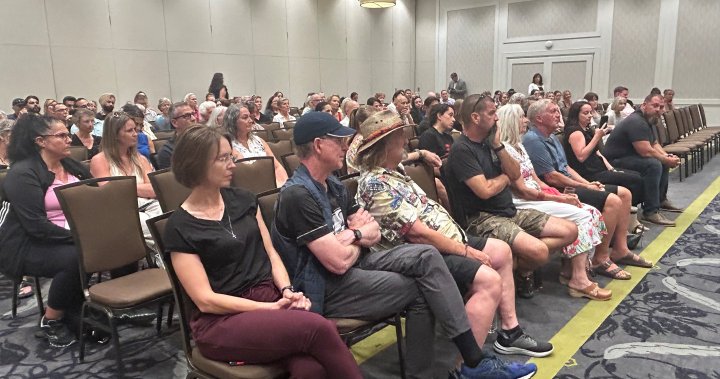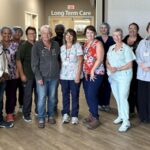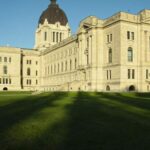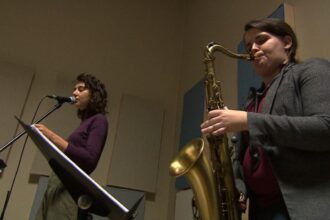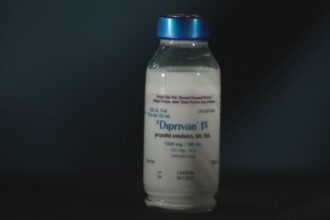The overflow crowd at Thursday’s town hall meeting in Kelowna spoke volumes before a single word was uttered. Hundreds of concerned citizens packed the Rutland Centennial Hall, with many forced to stand along walls and in doorways, all united by growing frustration over the healthcare crisis gripping Kelowna General Hospital and the broader regional medical system.
“I’ve been a nurse for 22 years, and I’ve never seen conditions this dangerous,” said Sarah Levine, her voice breaking as she addressed the crowd. “We’re working double shifts, without breaks, caring for patients in hallways. The system isn’t bending anymore—it’s breaking.”
The town hall, organized by the BC Nurses’ Union and the Hospital Employees’ Union, provided a platform for healthcare workers and patients to share increasingly alarming stories about a system in distress. Many attendees described lengthy emergency room waits exceeding 12 hours, cancelled surgeries, and critical staff shortages that have pushed Kelowna General Hospital to what many called “the breaking point.”
Dr. James Chen, an emergency physician who attended the meeting, painted a stark picture of current conditions. “We’re making impossible choices daily about who gets a bed and who waits in a hallway,” he explained. “These aren’t just statistics—these are our neighbors, family members, and friends who deserve better care than what our broken system can currently provide.”
Provincial health data supports these firsthand accounts, showing that Kelowna General Hospital has operated at over 120% capacity for much of the past year, with critical nursing positions remaining unfilled for months. The Interior Health Authority has acknowledged these challenges but maintains that recruitment efforts are ongoing.
Patient advocate Marilyn Thompson shared her harrowing experience after a cardiac episode last month. “I spent 18 hours in the ER waiting room before receiving treatment. The staff were amazing—working miracles with limited resources—but they’re drowning in an impossible situation.”
The emotional crescendo of the evening came when former hospital administrator Thomas Wilson took the microphone. “This isn’t a funding problem—it’s a priority problem,” he stated to thunderous applause. “We’ve known for a decade that our population was aging and growing. The warnings were ignored, and now we’re paying the price with human suffering.”
Provincial legislators in attendance, including representatives from both governing and opposition parties, faced pointed questions about immediate solutions. Health Minister spokesperson Jennifer Lee committed to “bringing these urgent concerns back to Victoria” but offered few concrete short-term solutions.
Union representatives outlined a five-point emergency plan, including immediate wage incentives for rural healthcare workers, expedited credentialing for internationally trained medical professionals, and temporary field hospitals to address capacity issues. The plan received overwhelming support from attendees but skepticism about political will to implement such measures.
Dr. Alisha Patel, a family physician, highlighted the systemic nature of the crisis. “What you’re seeing at KGH is just the most visible symptom of a primary care system that’s collapsing,” she explained. “Without family doctors, without preventative care, emergency rooms become the default for everything from prescription refills to chronic disease management.”
The meeting concluded with organizers announcing plans for weekly protests outside the hospital until substantial action is taken by provincial health authorities. Community members also established a patient advocacy network to document ongoing issues and press for systemic change.
As British Columbia continues to grapple with healthcare challenges seen across Canada, the question remains: will the raw emotion and organized response from Kelowna’s community finally catalyze the transformative change needed, or will this become yet another chapter in a continuing crisis with no resolution in sight?

